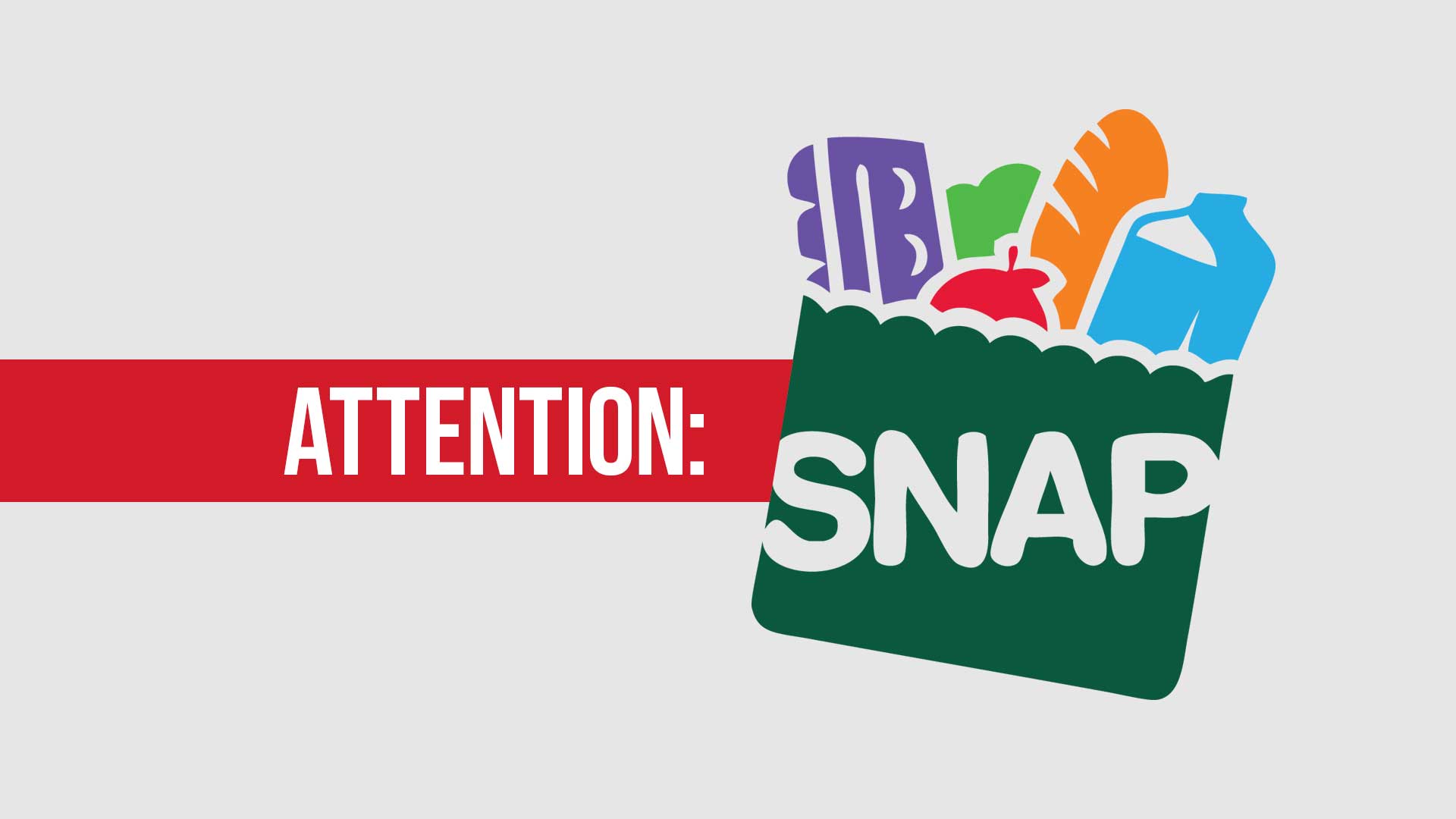The Truth About SNAP Cuts for ABAWDs

The reinstatement of a clause in SNAP legislature has been the source of much debate over the last month. Like any complex initiative, the actual implications of this clause have been misreported and politicized by many. For the Maryland Food Bank, this is not about politics. This is about hunger, and it’s important that everyone have access to the facts about the ABAWD time limit.
First things first: let’s define ABAWD
An ABAWD, short for able-bodied adult without dependents, is a person between the ages of 18 and 49 who has no dependents and is not disabled. This designation rules out children, seniors, and any adult who are disabled or responsible for raising a minor.
What is the ABAWD time limit?
The ABAWD time limit is a clause that was added to food stamp/SNAP legislation in 1996. It dictates that ABAWDs can only receive SNAP benefits for three months in a three year time span if they do not meet certain work requirements.
How is this different from the already-existing SNAP work requirement?
Existing SNAP rules require all recipients meet work requirements unless they are exempt because of age or disability or another specific reason. ABAWDs must meet special requirements, in addition to the general work requirements, or they will be subject to the time limit and lose their benefits.
To be eligible beyond the three-month period, an ABAWD must:
- Work at least 80 hours per month
- Participate in qualifying education and training activities at least 80 hours per month
- Comply with a workfare program. (Workfare means that ABAWDs can do unpaid work through a special State-approved program.)
- Engage in a SNAP Employment and Training Program
Most SNAP participants who can work, do work. Among households that include someone who is able to work, more than 75 percent had a job in year before or after receiving SNAP benefits. About 43 percent of SNAP participants live in a household with earnings. Some of these working individuals are ABAWDs, or able-bodied adults without dependents.
Why is it being debated?
During the economic downturn, states across the country chose to waive this clause, as it was limiting access to food assistance for too many individuals. This year, Maryland is planning to reinstate it in certain regions.
The debate centers around whether or not there are sufficient opportunities for Maryland ABAWDs to actually meet the requirements and continue to receive vital food assistance. This year, only about five states (Colorado, Delaware, South Dakota, Texas, and Wisconsin) have designated federal funding to provide a job training or workfare slot to every ABAWD at risk of losing SNAP benefits after three months.
In Maryland the ABAWD provision will apply to residents in eight counties — Anne Arundel County, Baltimore County, Carroll County, Frederick County, Howard County, Montgomery County, Prince George’s County, and Washington County — and it is estimated to possibly impact up to 15,000 Marylanders who currently rely on SNAP.
What does this mean for the Maryland Food Bank?
When federal food assistance declines, the demand at food pantries statewide increases proportionately. Our network was already stretched beyond capacity while trying to meet the needs in communities across the state. Now thousands more may need help.
Put plainly, we will not be able to adequately meet this rising need without a surge in support. You can help us today.
Donate Now






